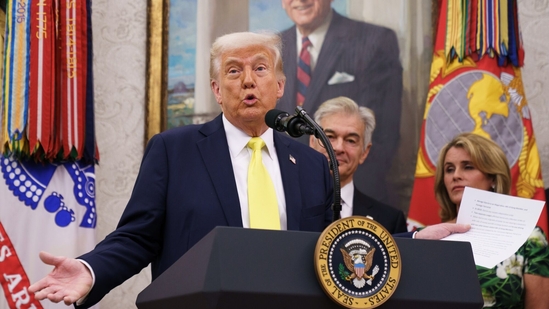President Donald Trump made waves again on Sunday, declaring that Columbus Day will no longer be shared with Indigenous Peoples Day, a break from the tradition started by his predecessor, Joe Biden.
Using his Truth Social platform, Trump proclaimed, “I’m bringing Columbus Day back from the ashes,” accusing Democrats of trying to erase the legacy of Christopher Columbus and disrespecting the Italian-American community that celebrates him.
This announcement is part of Trump’s larger campaign to revive what he sees as “traditional American icons” — a strategy aimed squarely at appealing to his political base as the 2024 election season heats up.
A Quick Look Back: How We Got Here
In 2021, President Biden became the first U.S. president to formally recognize Indigenous Peoples Day alongside Columbus Day. Through a presidential proclamation, Biden honored the “invaluable contributions and resilience of Indigenous peoples” while acknowledging that America’s history hasn’t always lived up to its promises of equality.
The move was praised by Native American communities and social justice activists, who saw it as a step toward recognizing the painful history of colonization — and the vital role of Indigenous peoples in America’s story.
However, under Biden, the second Monday in October still remained officially Columbus Day, the difference was symbolic but significant. The inclusion of Indigenous Peoples Day alongside it marked an effort to reframe U.S. history to be more inclusive.
Read Also: Nearly Half of Trump Voters Regret Their Vote: The Shocking Reality After 100 Days
Why Trump Is Pushing Back
Trump has long rejected efforts to reinterpret American history through a lens of diversity, inclusion, and what he calls “division.” In his Sunday post, Trump claimed that Democrats “did everything possible to destroy Christopher Columbus, his reputation, and all of the Italians that love him so much.”
In Trump’s eyes, Columbus Day isn’t just about the historical figure; it’s about preserving a version of American patriotism that honors European explorers and immigrant pride, particularly for Italian-Americans.
Interestingly, Columbus himself never set foot on what is now the mainland United States. His voyages took him to the Caribbean islands, but not North America.
Yet, over time, Columbus became a symbol for Italian immigrants seeking acceptance in a sometimes-hostile America.
The link between Columbus and Italian-American pride is so strong that after the horrific 1891 lynching of 11 Italian immigrants in New Orleans, President Benjamin Harrison declared the first national Columbus Day celebration in 1892.
Later, President Franklin D. Roosevelt made Columbus Day a federal holiday in 1934 during a period of rising recognition for Italian-Americans.

The Battle Over Statues and Symbols
Trump’s focus on Columbus fits neatly into his broader “culture war” narrative, especially around statues and monuments.
In 2017, when protests against racial injustice led to the removal of Confederate statues and even Columbus statues, Trump strongly objected.
One flashpoint came when a statue of Columbus was vandalized and toppled into the harbor in Baltimore following George Floyd’s murder. In 2020, Trump’s administration funded its restoration, a symbolic move to show that he stands against what he sees as “cancel culture.”
In New York City, a towering 76-foot-tall Columbus monument in Columbus Circle survived Mayor Bill de Blasio’s review of controversial public monuments, but the political tension over these symbols remains alive today.
Why This Matters Right Now
Trump’s announcement isn’t just about a holiday; it’s about the story Americans tell themselves about who they are.
By rejecting Indigenous Peoples Day, he’s signaling that he will double down on traditional narratives that many historians and activists say overlook the violence, exploitation, and displacement that Indigenous peoples suffered after Columbus’ arrival.
On the flip side, many Americans, particularly in Italian-American communities, feel that Columbus Day is one of the few days that celebrate their immigrant journey and contributions to U.S. society.
Trump is tapping into that pride and grievance at the same time, hoping it energizes voters who feel alienated by more progressive interpretations of history.
Read Also: Trump Voters Reflect on His First 100 Days: “Kicking Butt” or “Going Too Fast”?
Final Thoughts
As we head closer to another heated election cycle, expect debates over holidays, statues, and the meaning of American identity to only get louder. Whether or not Trump officially succeeds in reshaping the narrative around Columbus Day, it’s clear that the battle over how history is remembered, and who gets to tell it, is far from over.

